10 Common Pool Maintenance Mistakes in Singapore To Avoid
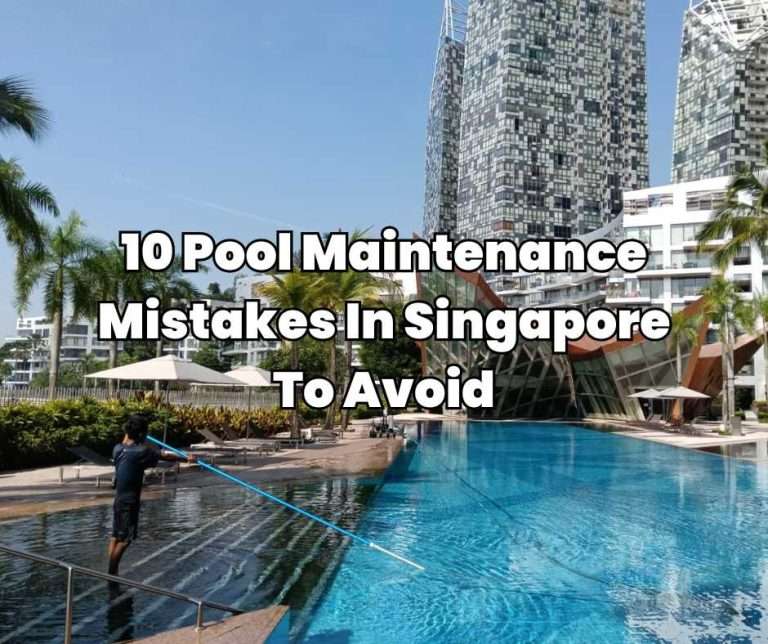
Why Is Pool Maintenance Important in Singapore?
In Singapore’s warm and humid climate, pool maintenance isn’t just about keeping the water clear, it’s about ensuring hygiene, safety, and long-term cost savings. The tropical weather encourages algae growth, bacterial buildup, and chemical imbalances that can quickly turn a beautiful pool into an unhealthy one if not properly managed.
Regular maintenance helps keep your pool water clean, balanced, and safe, while also protecting your filtration systems and pool tiles from damage caused by constant exposure to heat and humidity. However, many pool owners in Singapore unintentionally make simple maintenance mistakes that lead to cloudy water, unpleasant odours, or costly repairs later on. Before these issues arise, it’s important to understand what those common mistakes are, and how to avoid them.
With Watercraft Engineering’s extensive accolades and reputation in the Singapore pool industry, we’ve seen it all. Here are 10 pool maintenance mistakes you’ll want to steer clear of.
Mistake 1: Not Brushing the Swimming Pool
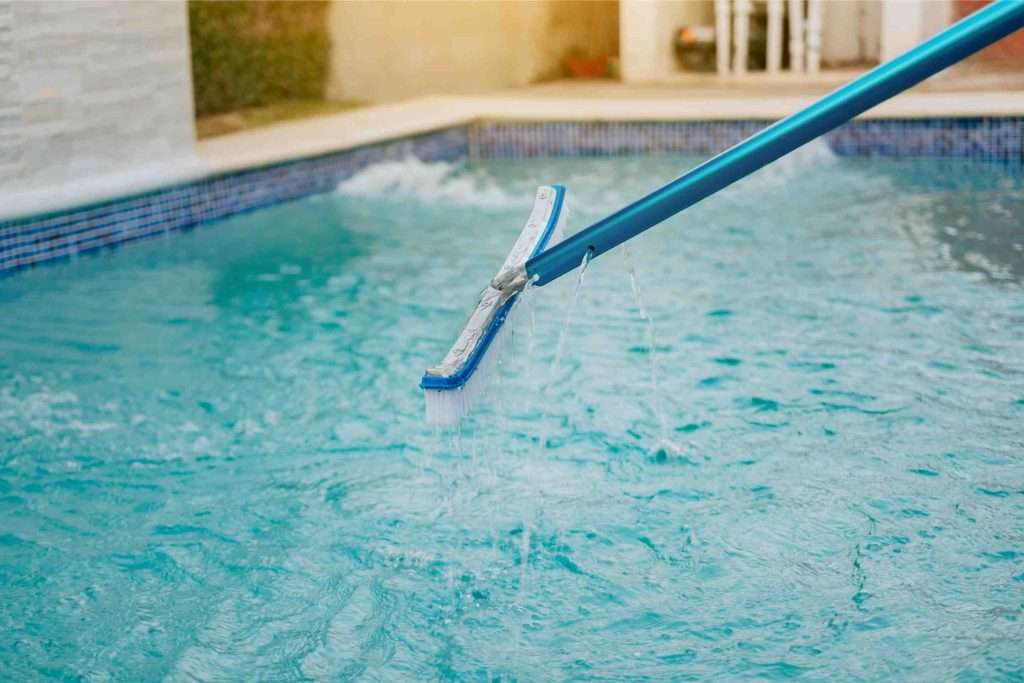
Brushing removes dirt, algae, and debris from pool walls and surfaces. If you’re short on time, use an automatic pool brush, but don’t skip hard-to-reach spots:
- Behind the ladder
- Along the waterline
- On steps and stairs
- In corners and crevices
These areas collect the most algae and grime. Regular brushing keeps your pool clean, clear, and safe.
Mistake 2: Using a Leaf Skimmer Instead Leaf Rake
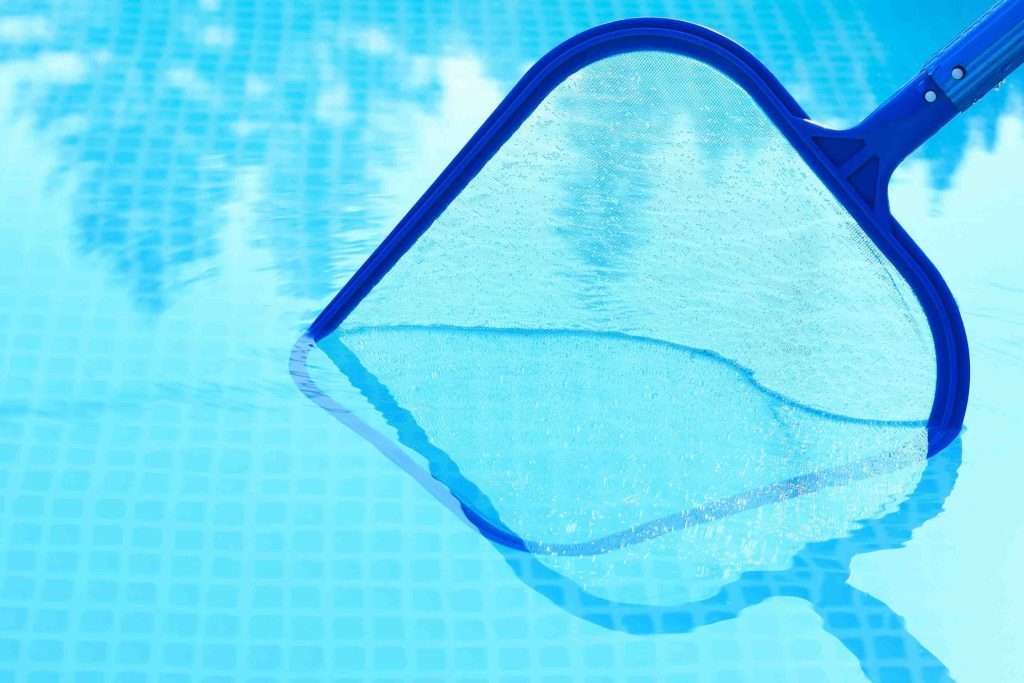
While skimming is essential for removing debris, a leaf rake is a better investment. It can do everything a skimmer can and more. A leaf rake is designed with a deeper net, making it easier to collect and hold more debris, especially from the bottom of the pool.
This helps you clean faster and more effectively. Don’t forget to empty your skimmer basket or rake net after each use. Leaving debris inside allows bacteria, fungi, and viruses to grow, which can affect your pool’s water quality.
Mistake 3: Using an Automatic Pool Cleaner on Algae
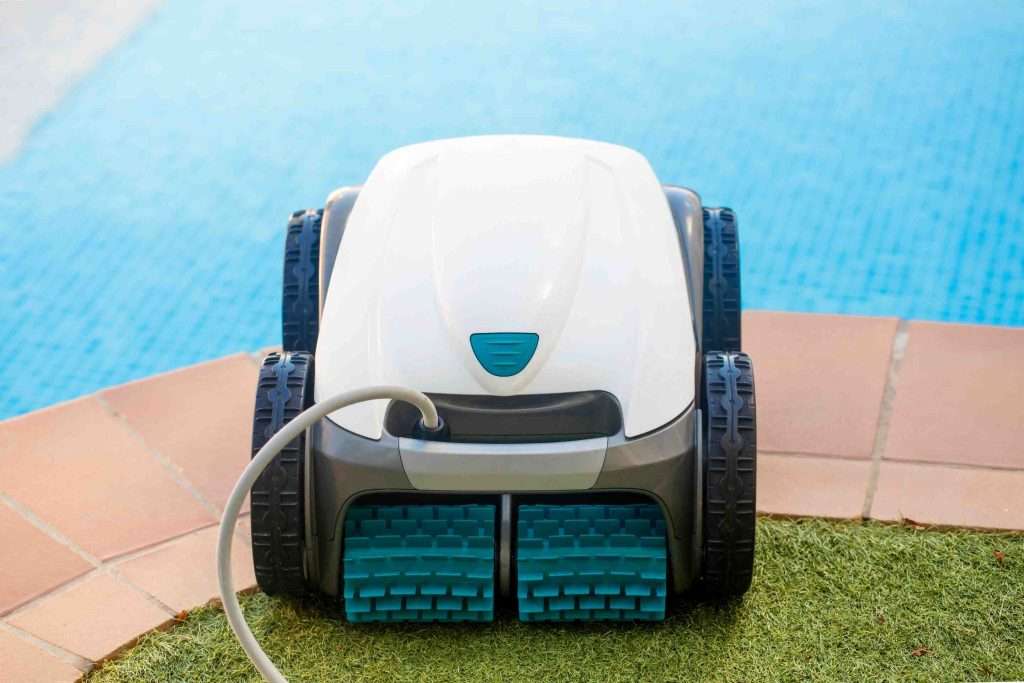
Algae are a common pool cleaning problem. Avoid using an automatic cleaner when algae are present, because it can push algae past your filter and back into the pool. Instead, use a manual vacuum or brush to remove algae completely before relying on automatic cleaning. This keeps your pool clean and prevents algae from spreading.
Mistake 4: Not Checking Your Pool’s pH Regularly

Maintaining the right pH is essential for both swimmer comfort and pool efficiency. A slightly alkaline pH helps chlorine work best and prevents red eyes, dry skin, and irritation. If the water is too acidic or too basic, it can damage pool filters and increase maintenance costs. Regular pH checks keep your pool safe, clean, and long-lasting.
If you are keen on keeping your pool in immaculate condition, dive into our comprehensive guide on the ultimate pool maintenance checklist!
Mistake 5: Using a Nylon Brush for Black Algae
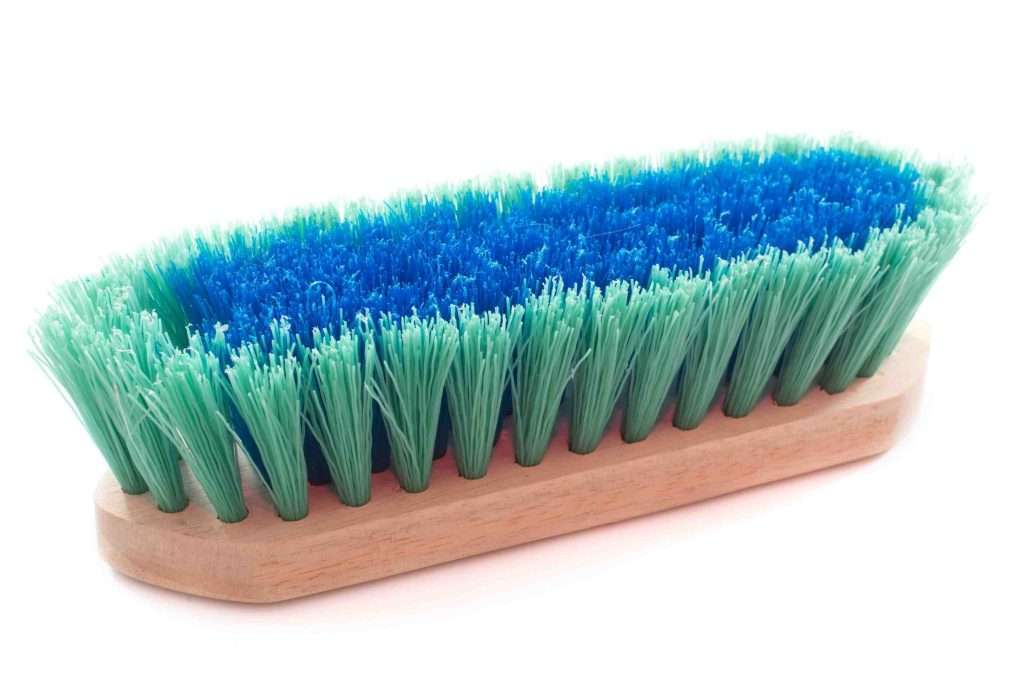
Black algae is tough to remove and won’t come off with a regular nylon brush. Use a stainless steel brush to scrub it away effectively. Also, clean your pool filters regularly. Debris like leaves, bugs, and small items can get stuck, reducing filter life and performance. If unsure, hire a professional to avoid damaging your filters.
Mistake 6: Not Using a Pool Cover
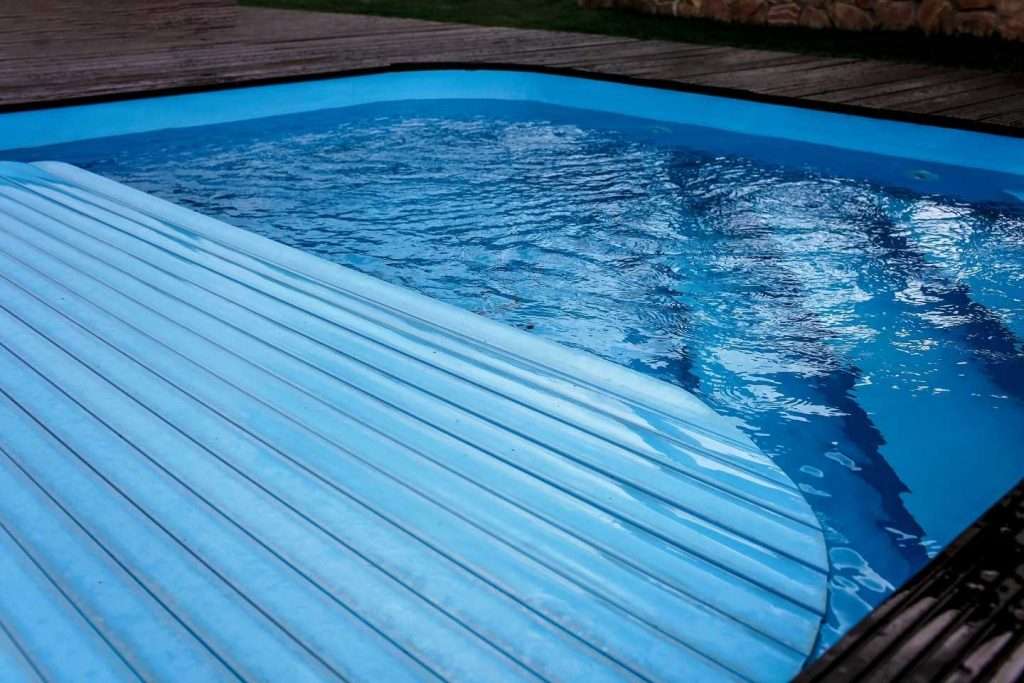
A pool cover keeps debris out, but in warm weather, it can create a humid environment where bacteria and algae thrive. Covers are best for winter or long periods of inactivity. For optimal results, use a custom-fit cover to protect your pool and keep it clean.
Mistake 7: Shocking Your Pool in the Day
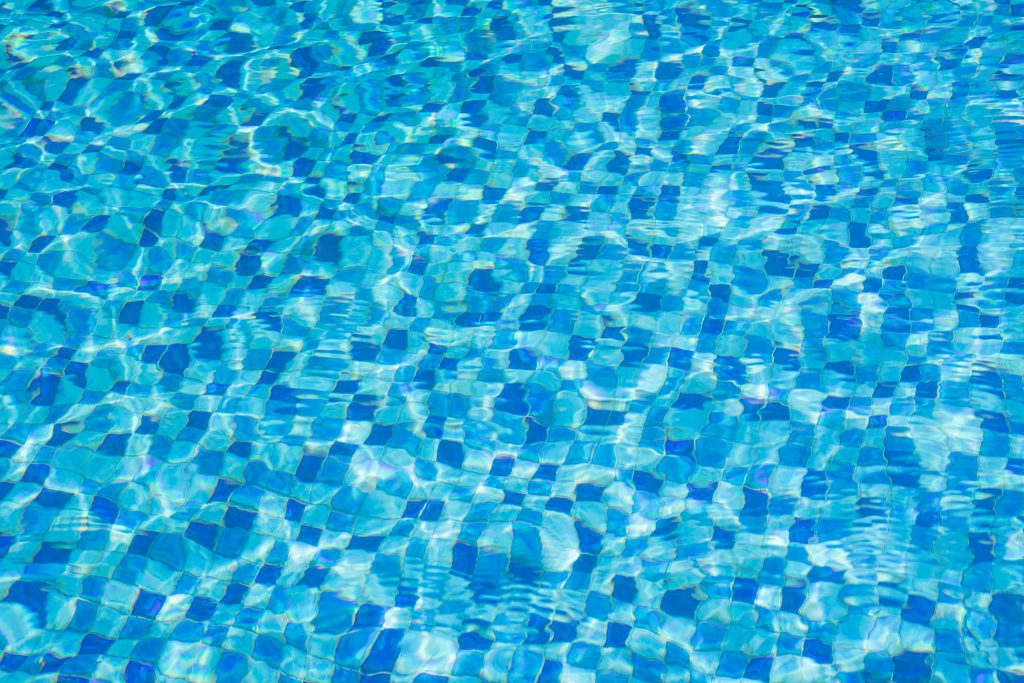
Shocking removes chloramines (dead chlorine) and kills algae and bacteria. Always shock your pool at night, because sunlight can destroy chlorine during the day. For extra protection, you can use an algae preventer, but it’s strong and can damage tiles if used incorrectly. Consider hiring a professional pool cleaner for this step.
Mistake 8: Ignoring Clogged Pool Filters
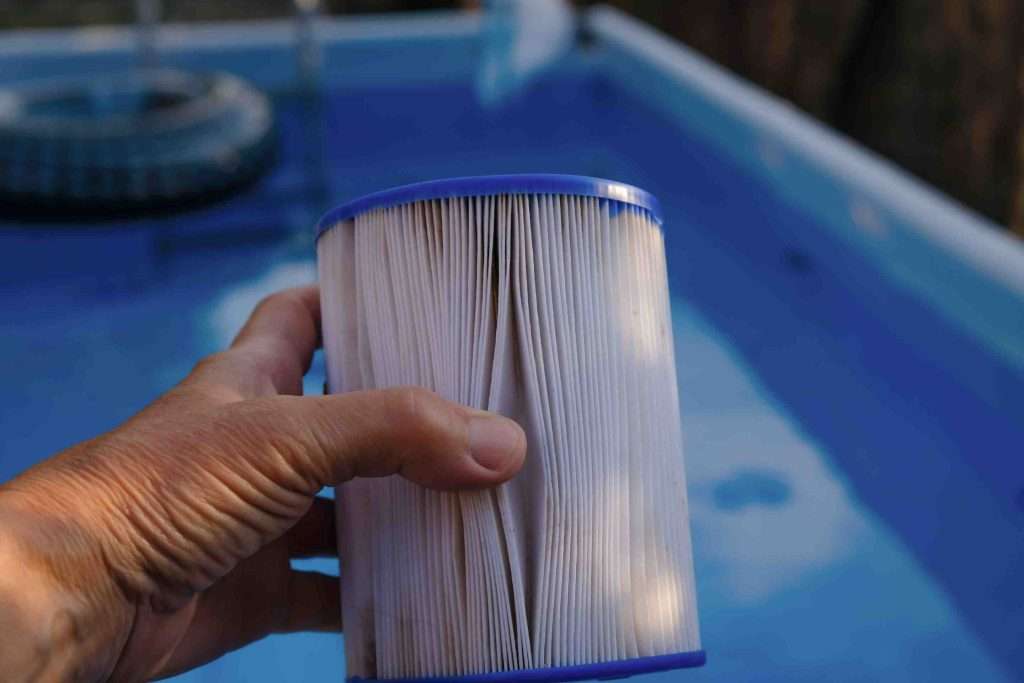
A blocked filter reduces water circulation, causes cloudy water, and can damage the pump. It’s essential to clean or backwash weekly, especially after storms or heavy use. Always check the pressure gauge: high pressure means cleaning is needed. Hire a professional to inspect and replace worn parts to avoid bigger problem
Mistake 9: Not Running the Pool Pump Long Enough
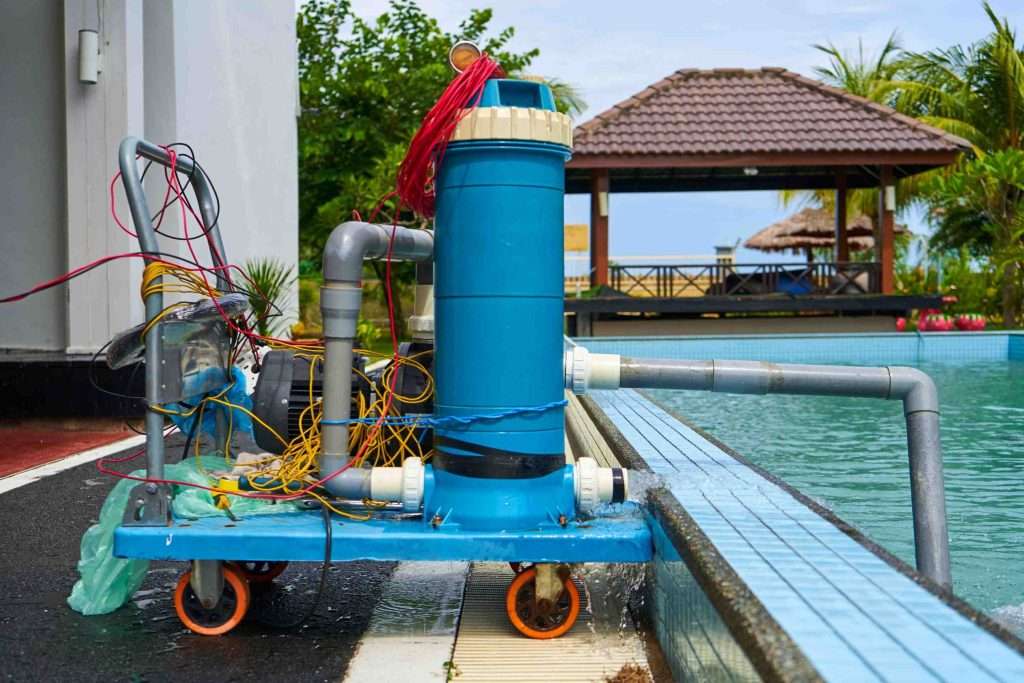
Your pool pump is the heart of your pool’s filtration system, circulating water and filtering out debris. Not running the pump long enough each day can lead to stagnant water, algae growth, and dirty filters. Aim to run your pump for at least 8–12 hours a day, especially during heavy pool use. This helps ensure that all the water is properly filtered and reduces the risk of chemical imbalances.
Mistake 10: Neglecting Pool Water Levels
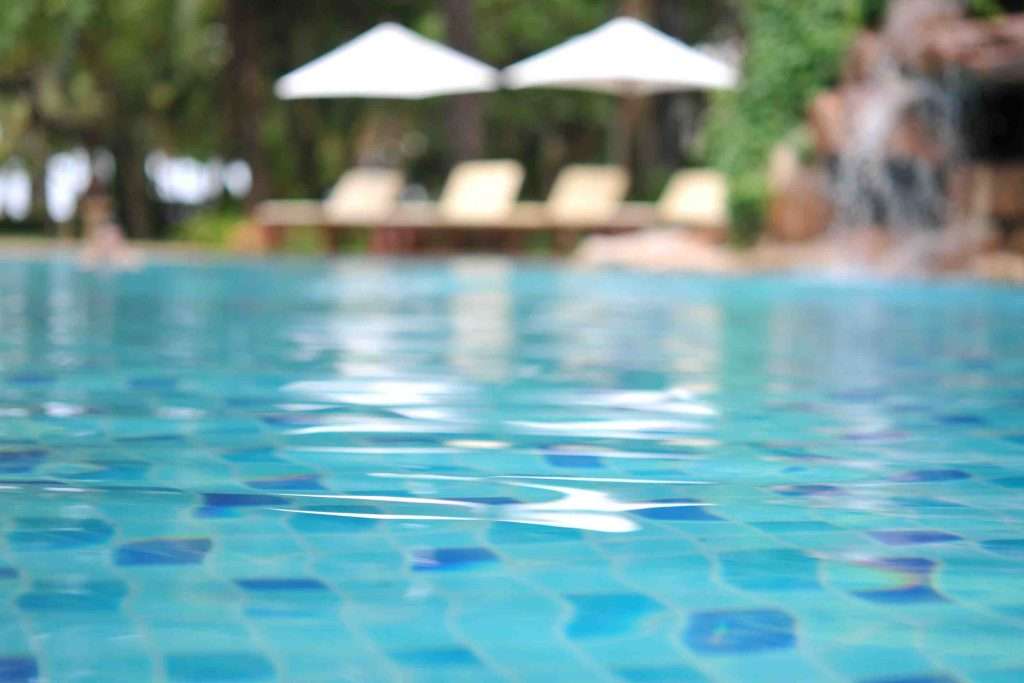
Letting water level drop too low or get too high can damage your pool equipment. Keep your pool water level at about the middle of your skimmer opening. If the water level is too low, your pump could run dry and burn out. If it’s too high, the skimmer won’t be able to collect debris properly, which leads to dirty water.
How a Professional Singapore Pool Maintenance Company Can Solve These Pool Problems?
Many pool owners unknowingly make mistakes that can lead to costly repairs, algae outbreaks, and poor water quality. Hiring a professional swimming pool maintenance company, like Watercraft Engineering, can help prevent these issues and keep your pool in perfect condition year-round. You benefit from our:
- Expert knowledge on cleaning, water chemistry, and algae removal
- Proper use of professional-grade tools for brushing, skimming, and vacuuming
- Routine inspections to prevent equipment failures
- Customized maintenance schedules to match your pool’s usage and environmental conditions
- Peace of mind knowing your pool is safe, clean, and ready to enjoy year-round
Investing in professional maintenance eliminates pool mistakes, prolongs the life of your pool equipment, and ensures your water stays crystal clear and hygienic. Instead of spending hours troubleshooting problems, let the experts handle it efficiently and effectively.
If you’re still undecided, check out our article on ‘DIY vs. Hiring a Pro for Swimming Pool Maintenance,’ where we break down the pros and cons to help you make an informed choice.
Ready For a Crystal Clear Pool?
Don’t let small maintenance mistakes turn into costly repairs. Trust the experts at Watercraft Engineering Pte Ltd. With over 20 years of industry experience, we provide professional pool care services you can count on. Contact us today to schedule a consultation or get advice from our team of specialists.
